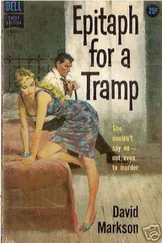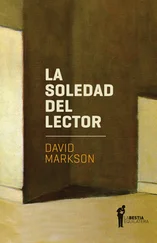I remember this because the cat was a city cat and had never been put out before.
Every night for weeks, I worried about that cat.
As a matter of fact I felt quite guilty as well, even though I was never quite certain what it was that I was feeling quite guilty about.
Surely a cat which has been locked up in a loft in SoHo for all of its life will find it agreeable being outside at night, I attempted to convince myself.
Possibly it will even find other cats to associate with, which it has likewise never done before, I additionally rationalized.
Nonetheless my condition of feeling quite guilty continued for the longest time.
Even after I had become reassured that the cat would always come back, so that eventually it would often be as late as noon before I even remembered to look, my condition of feeling quite guilty continued.
Except that by then what I was feeling quite guilty about was having forgotten to let the cat back in.
Frequently I suspected that the cat had done little more than sleep under the porch all night in any event.
Nor have I the slightest notion what this might have to do with the garbage disposal area, since I do not remember a garbage disposal area from the summer when I painted in Corinth, New York.
That summer's garbage was collected at the door.
There is likewise no connection between the cat I am talking about and the cat I saw at the Colosseum, incidentally.
The cat I saw at the Colosseum was gray, and appeared to be playing with something, such as a ball of yarn.
My own cat was russet colored, and was basically slothful.
There is also obviously no connection between my russet cat and the cat which scratches at the broken window here.
Even if for the life of me I cannot remember having put that tape on.
Possibly there was no cat at the Colosseum either.
If one wishes to see a cat badly enough, one will doubtless see one.
Though possibly there was a cat. Possibly it was only the floodlights, when I rigged up floodlights, which made it leery.
Naturally I would have had no way of knowing if it had nibbled at anything behind my back either, since most of the cans I had set out were half emptied by rain in no time.
Before I ever saw one, I would have supposed that castles in Spain was just a phrase, too.
Was it really some other person I was so anxious to discover, when I did all of that looking, or was it only my own solitude that I could not abide?
In either event people continually looking in and out of windows is doubtless not such a ridiculous subject for a book, after all.
Even though Emily Brontë once struck her dog so angrily that she knocked it out, simply because it had gotten onto her bed when she had told it not to get onto her bed, which is the one thing Emily Brontë did that one wishes she hadn't.
Even if, as I have perhaps said, there are also things Emily Brontë did not do that one wishes she had.
Although which may well be none of one's business either, it finally occurs to me.
And meantime I would appear to have completely forgotten my russet cat's name.
Although what I called the cat at the Colosseum, I am fairly certain, was Pintoricchio, after a minor painter from Perugia who did some frescoes in the Sistine Chapel some time before Michelangelo put in the parts that look like Daumier.
Possibly I will think up a name for the cat outside of my broken window, too.
Then again, I should also perhaps indicate that there is no connection between any of these cats and the cat which Simon once had, in Cuernavaca, and which we never could seem to decide on a name for at all.
Cat, having been all we ever called that one.
Well, and additionally none is connected to the cat which was intelligent enough to ignore the gold coins that his students had painted onto the floor of Rembrandt's studio, either.
Though by stating that, it so happens that I have now simul- taneously solved the question of my russet cat's name after all.
In fact now that it has come back to me, it could not have come back more vividly.
Practically every single day at Corinth, for instance, when I did remember to let the cat back in, I said good morning to it.
Good morning, Rembrandt, being exactly how I said it practically every single time.
Russet as a color that one automatically associates with Rembrandt having been the origin of this, naturally.
Even if russet is perhaps not a color.
In any case it is surely not a color that has anything to do with painting, although admittedly it may be a color that has something to do with bedspreads. Or with upholstery.
Although not being a painting a cat can be russet too.
And being russet is apt to be named Rembrandt.
Which in fact no less an authority than Willem de Kooning found to be a perfectly suitable name, on an afternoon when the identical cat happened to climb into his lap.
Perhaps I have not mentioned that my russet cat climbed into Willem de Kooning's lap.
My russet cat once climbed into Willem de Kooning's lap.
The cat did this on an afternoon when Willem de Kooning was visiting at my loft, in SoHo.
I have forgotten the date of this visit, but I do believe it was not long after the afternoon on which Robert Rauschenberg had also visited, and I had hastily hidden my drawings.
Then again, the reason for Willem de Kooning having approved of the cat's name may have actually had less to do with the cat being russet than with Rembrandt having been Dutch, when one stops to think about it.
Being Dutch himself, de Kooning would have naturally felt certain ties to Rembrandt.
One scarcely means family ties, of course, since one would have surely known about this, had any existed.
Willem de Kooning is descended from Rembrandt, one would have heard.
Then again, who is to argue that he might not have been descended from somebody who had at least once met Rembrandt, on the other hand, which even de Kooning himself would have doubtless not been aware of?
Or from somebody who had been a pupil of Rembrandt, even?
Surely it would have been easy to lose track, after so many years.
How many people would have ever guessed that Maria Callas could be traced all the way back to Hermione, for instance?
Actually, something like this could have been all the more likely if the pupil de Kooning was descended from had never become famous himself, which is generally what happens in any event.
Many pupils not only fail to become famous, in fact, but eventually even go into a different line of work altogether.
Why couldn't Willem de Kooning have been descended from a pupil of Rembrandt who had decided he did not have any future as a painter and had become a baker instead, let us say?
Sooner or later, surely, the man's descendants would have had no idea that anybody in the family had ever been a pupil of Rembrandt at all.
Father was a pupil of Rembrandt before we opened the pastry shop, one can imagine being said. Or even, grandfather was a pupil of Rembrandt.
Certainly it would have stopped being passed down long before Willem de Kooning himself was alive, however.
As a matter of fact Claude Lorrain was actually a pastry cook who decided to become a painter, and one would wager that hardly any of his descendants could have named the man who taught him to bake, either.
Then again, what I have been saying about pupils is not necessarily always the case, as it happens.
Merely from among those who have been mentioned in these pages, Socrates's pupil Plato and Plato's pupil Aristotle and Aristotle's pupil Alexander the Great are three who certainly did become famous.
Even if one does sometimes stop to wonder just exactly what Aristotle might have happened to call Alexander, in those days.
Читать дальше












